This will go down as a strange Christmas. Christmas Eve is always rushed. This is especially true when Christmas falls on a Sunday, which means I have two messages to prepare… This year, I thought I would get ahead of myself. Partly, I was forced to because the guy who tapes the sermon for Mayberry Church was leaving town for the holidays. So I taped the sermon on Tuesday. Because he was traveling and a number of people in the church had come down with COVID, we took precautions and wore masks or stood (as with the taping) on opposite ends of the sanctuary.
Then I woke up on Wednesday, feeling congested and not very well. I tested myself. After almost three years of avoiding the virus, I was positive. The quarantine started… Thankfully, my library (and visitor guest room) is almost done in the basement, so I moved down stairs). I would not be there for Christmas Eve or Christmas Day (which I never got around to preparing a sermon for). I am thankful for many people who stepped up and help make sure worship will continue.
Then there’s this bomb cyclone that much of the country faced over the past two days. Last night, when I went to bed, the temperature was at -2 with winds gusting. This morning, I got up at 6 AM and the temperature was -6, with the winds sustained around 18 mph and gusting much higher. Lots of people lost power. For a time, it was questionable if we’d have the service at Mayberry tonight, as their power was out, but it’s come back on. The power is still out at Bluemont Church and Appalachian Power doesn’t think they’ll get it back before tomorrow night, so we cancelled the Christmas Day service that was to be held there…
As for COVID, I was very congested for the first two days. Now, I don’t feel bad, but will abide by the recommended quarantine. I hope I’ll be back to normal next week. Here’s the sermon I was going to preach tonight. Instead, it will be shone to those who brave the cold on a big screen TV.
Have a Merry Christmas everyone!
Jeff Garrison
Mayberry Presbyterian Church
December 24, 2022
Isaiah 9:2-7
This evening, I’m drawing my homily from a well-known passage from Isaiah, one often read during the Christmas season. As I have been reminding you through Advent, the first 2/3s of Isaiah is filled with judgment with a few kernels of hope sprinkled in. We’ve been looking at these passages of hope. This is another one of these passages. As we’ve just past the winter solstice with the longest night of the year, it’s good to be reminded that darkness never has the final word. Read Isaiah 9:2-7.
###
Benighted is a word that is often used by mountaineers. It refers to getting caught in the darkness when climbing or hiking.[1] Generally, one doesn’t plan to get caught out like that, but I often go out for a walk as the sun sets, so that I might hike back in the night. I love watching the light fade from the horizon and the stars to pop out in the sky as I acknowledge each constellation as old friends. If I’m walking back up Laurel Fork Road, some of the hayfields allows for long views off the west and in the winter, I can see lights twinkle at Crooked Oak and toward Hillsville. I take comfort in these lights, knowing they represent homes where people are warm and safe.
It’s a little more troubling to hike at night when there is no light. I’ve been caught a few times like that, when it’s dark and you can’t see more than a few feet ahead. Once, in a backpacking trip in Yosemite, I’d walked out to a ledge about a half mile from where we’d camped to watch the sunset. I stayed a little longer than planned and was making my way back in the dark. Suddenly, a bear coming down the path in the other direction, stood up in front of me. It was as startled as me, and thankfully took off in another direction. Darkness can be scary.
Without vision, there is no comprehension of what’s out there, what’s around you. It’s all about what’s with the next step or within our reach. You walk slower and try to avoid running into things. It can be scary. We become confused and find ourselves lost. We’re become anxious and apprehensive, as I was the rest of the way back to my camp.
This is the situation Isaiah addresses in this oracle. People walking in darkness, living in a land of absent of light. Tonight, millions of people in Ukraine live in darkness because Russia constantly bombards their electrical grid in an attack of civilians. Those civilians could identify with those whom Isaiah addressed in this passage. We’ve all dealt with similar darkness during ice storms. It’s frightening, but Isaiah offers hope. There is a promise of light filling the land. The light brings joy, there is a renewed confidence. As with the breaking of dawn, things are changing.
We take light for granted. We flip the switch and like magic, light appears. We are troubled when the power doesn’t work, which is why many of us have generators. Candles and flashlights just don’t do it for us anymore. Especially now, at the time of the year when the nights are at their longest and the air is cold.
Yet, despite the easy availability of light, we still suffer from depression and want. The metaphor of darkness still applies to us as we worry about the present and fret over the future. We need to hear and experience Isaiah’s words again.
This passage of Isaiah, possibility originally written for the birth of one of Jerusalem’s kings, offers hope to a people oppressed.[2] As a nation, Israel and Judah stood at the crossroads of mighty nations. In world affairs, they were a pawn, in the middle of a chessboard, with the powers of the Fertile Crescent on each side. The dark pieces of the chessboard could have been Egypt and the white pieces could represent a variety of nations (Assyria, Babylon, or Persia) depending on the era of history. Sitting in this crucible, Israel always felt insecure. But at the time of a new king there would be hope that alien rule would come to an end and their enemies would be defeated as the new king restores the prominence of Israel to what it had been under David. It would be centuries before Jesus’ came, fulfilling this prophecy.
In verse 4, Isaiah recalls the victories of Gideon at Midian, where he led the Israelites into battle. Over 32,000 Israelite men responded to the call to arms to save their nation, but God had Gideon whittle down the number of soldiers. In the end, he kept a force of only 300 who slipped into the Midianite and their allies, the Amalekites, camp and routed them. With just a handful of men, but more importantly with God’s help, they were victorious over a much larger army.[3]The promises in our passage all link to God working to end their oppression as God had done in the days of Gideon. This leads to verse 6, which is perhaps the most hopeful verse in scripture, where Isaiah’s oracle announces the birth of a child. But sadly, no such king was born during Isaiah’s era.
The early church quickly realized how this passage applied to Jesus, whose birth we celebrate tonight. Jesus came in humility, yet had the authority of God, was God with us. Jesus offers us a new way of enjoying peace. Of course, his reign hasn’t been fully realized and there are still those who oppose his kingdom, but his victory over evil and death has been won on the cross and it’s only a matter of time. For as we celebrate his birth, we also long for his return and the everlasting kingdom.
On these dark winter nights, when you see lights glimmering in the distance, think of the hope we have in Jesus, the light of the world. As we heard earlier this evening from the prelude to the Gospel of John, “the light shines in the darkness, and the darkness does not overcome it.”[4]
There is a legend that one winter, the great church reformer, Martin Luther was walking in the woods at night. There was a cedar tree frosted with snow on a hill above. As he looked up at this sight, he could see the stars flickering behind and through the branches of the tree. He was so moved that he had a tree cut down and brought inside his home and decorated it with lights to recapture the glory he’d witnessed. This season, I hope you can capture that same glory when you look at the lights all around us and be reminded of the hope we have in Jesus Christ, whose birth we celebrate this evening. For in Jesus Christ, born of Mary, God came into our world and lived among us, showing us how to live, and reminding us that we’re not alone. We should no longer live in the fear of the darkness, for unto us a child has been born…. Amen.
[1] This word came from a Twitter post by Cian McCarthy: https://twitter.com/arealmofwonder/status/1605101212554117120
[2] For a more fuller discussion of this passage as an enthronement oracle, see Otto Kaiser, Isaiah 1:12, Old Testament Library, Second Edition, John Bowden, translator, (Philadelphia: Westminster, 1983), 210-214.
[3] See Judges 7.
[4] John 1:5.
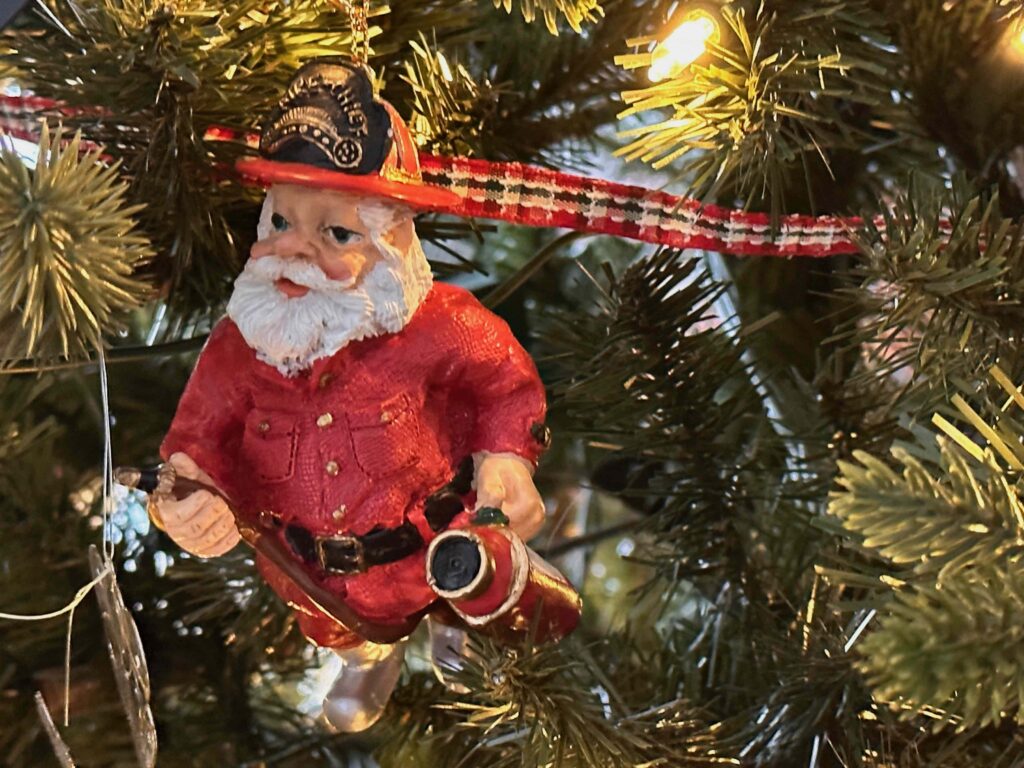

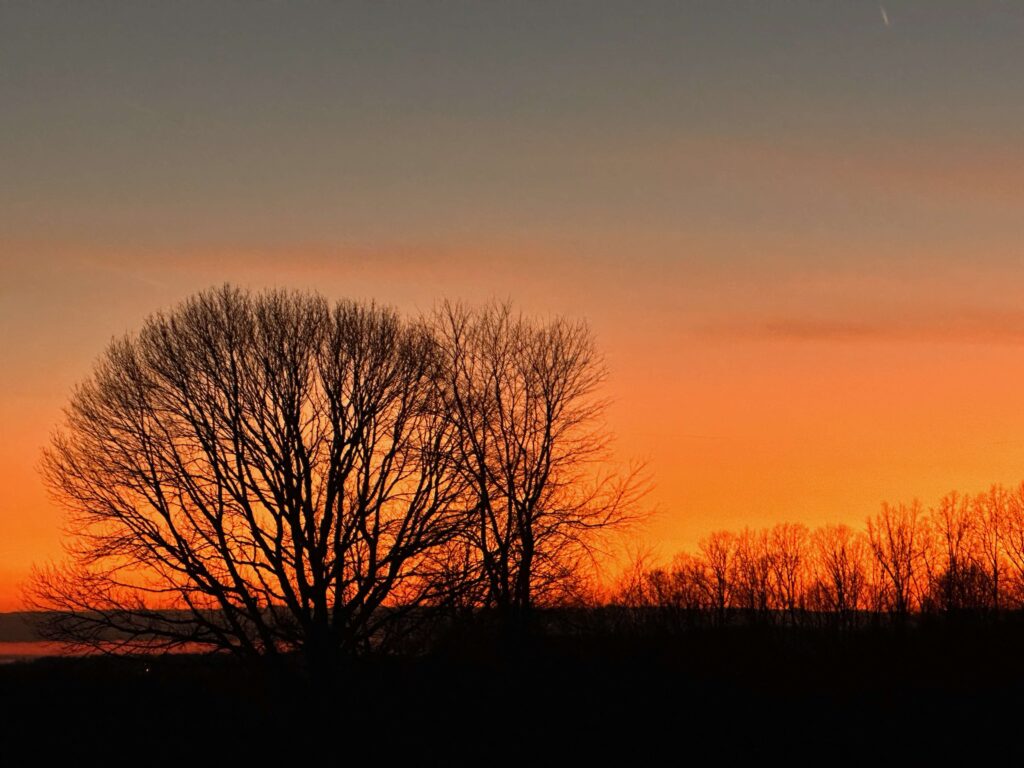
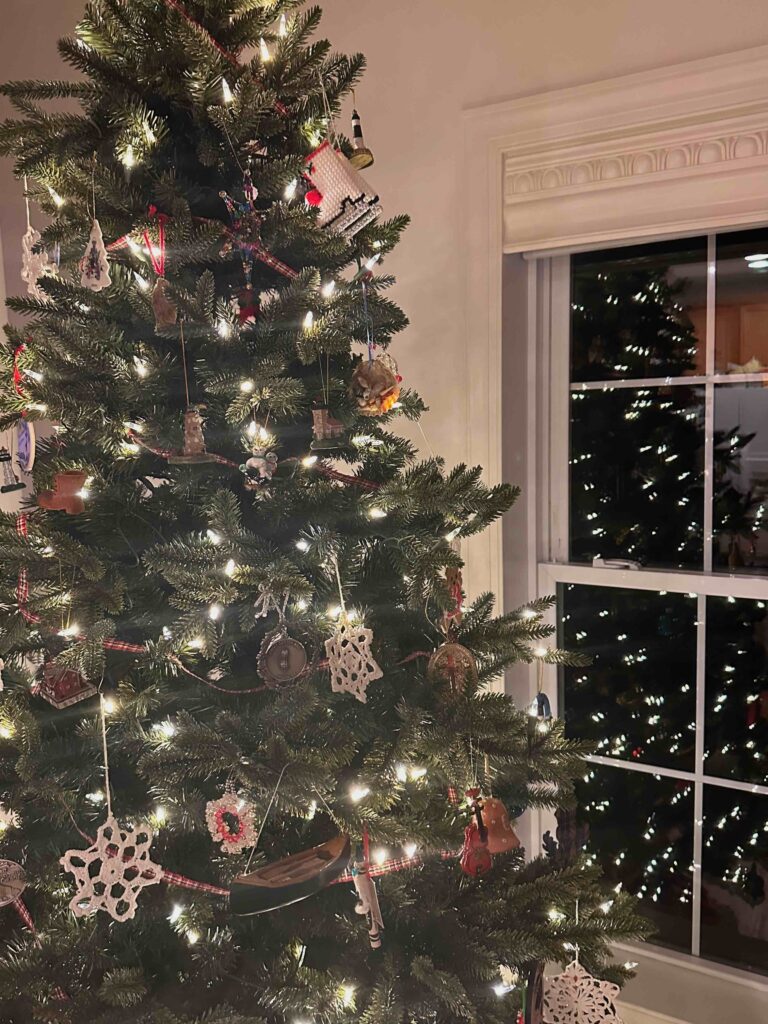
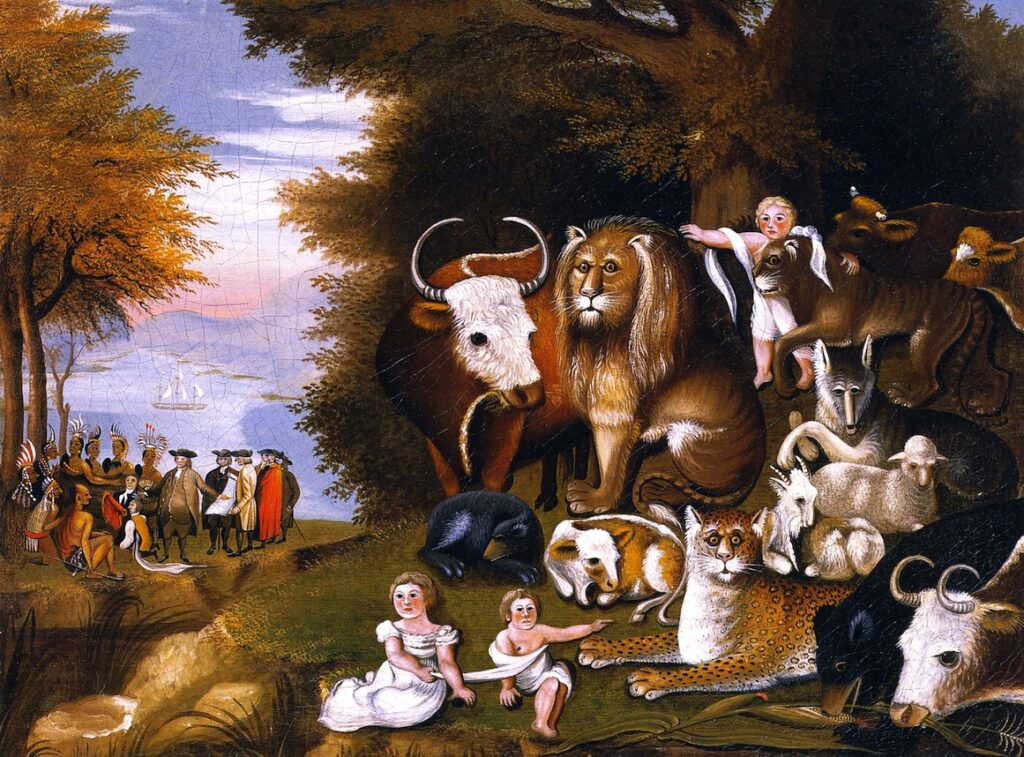
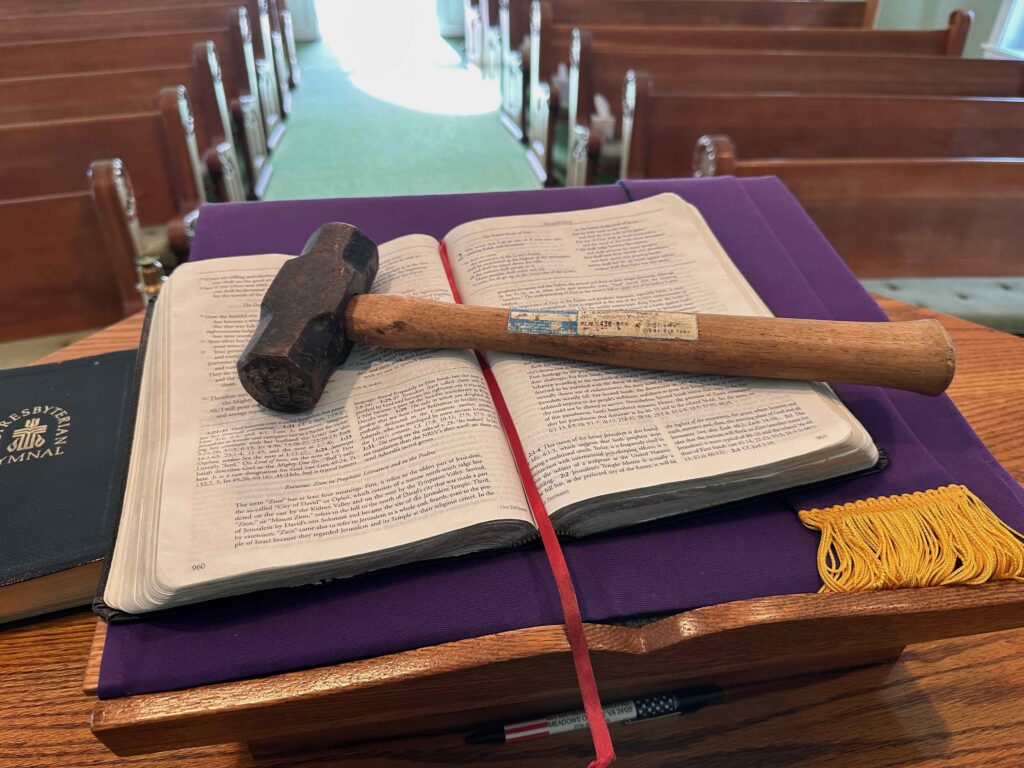
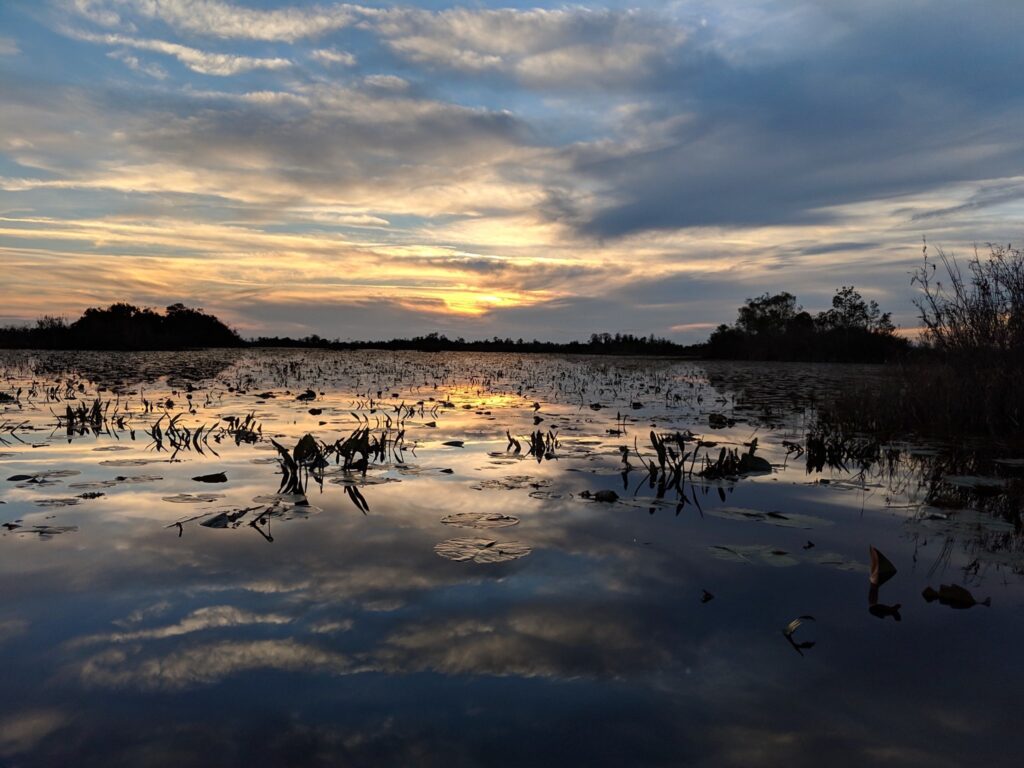


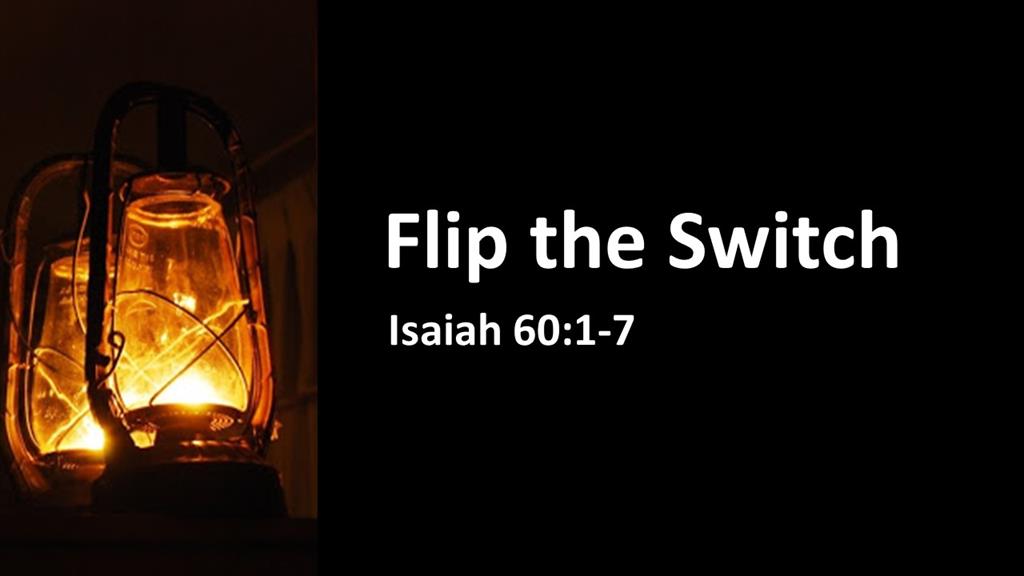
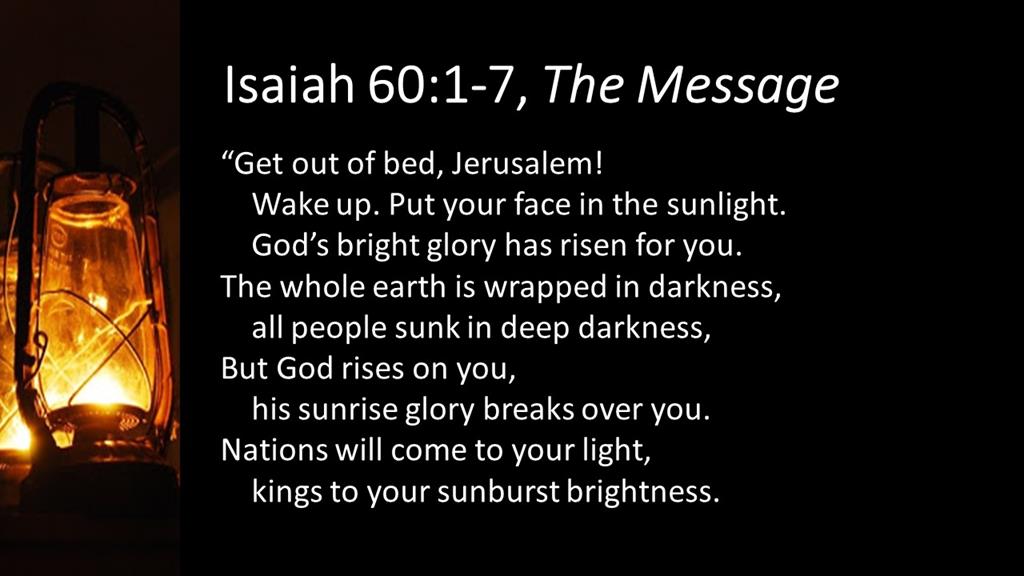
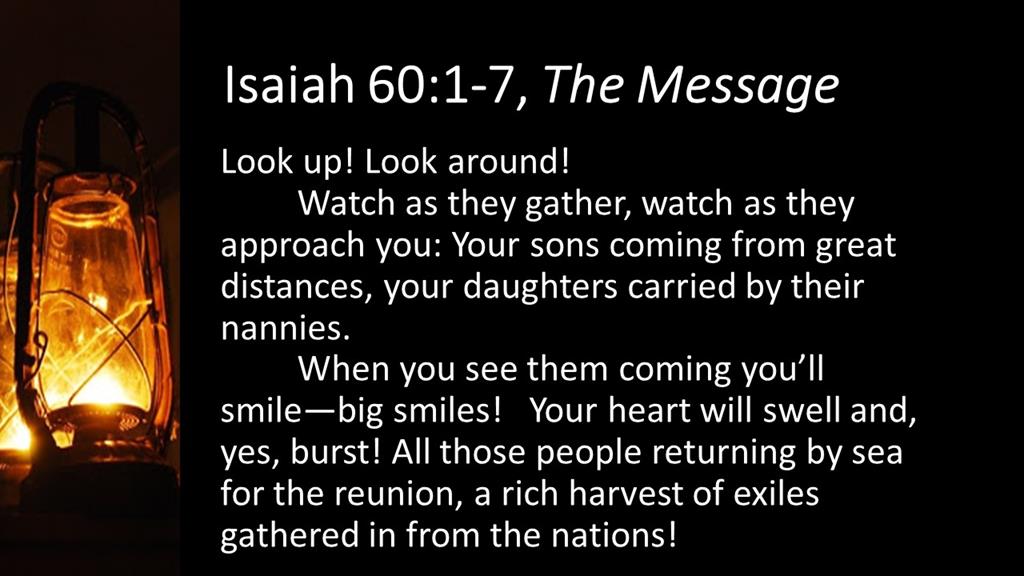
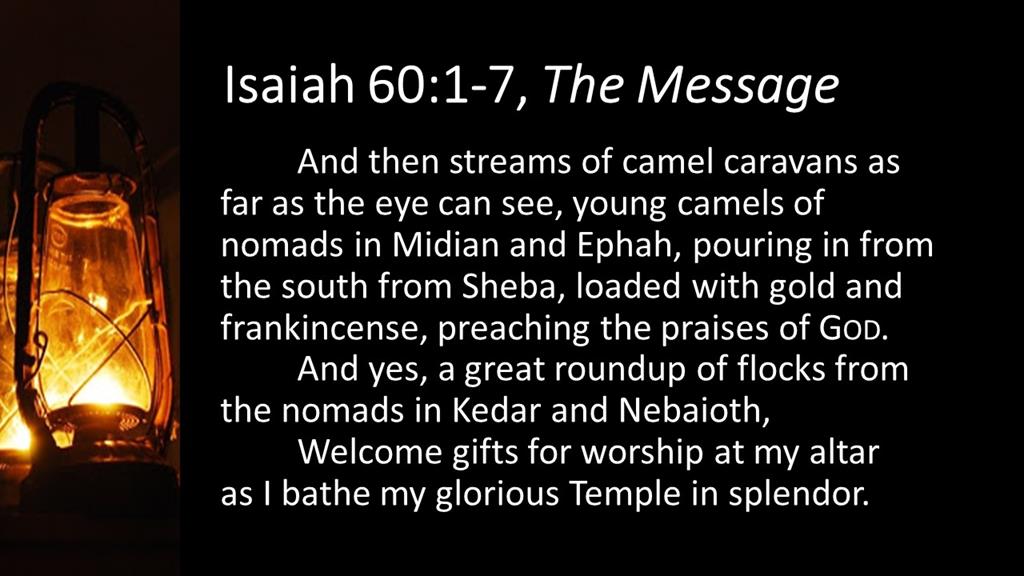
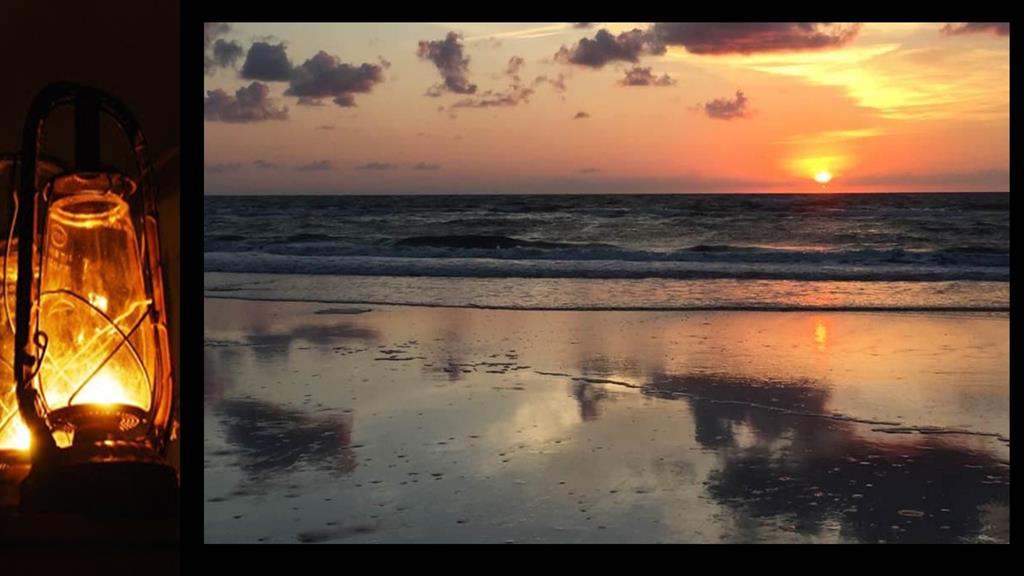 I was blessed as a child to spend many days camping on an undeveloped beach, generally in the fall of the year when the bluefish were running. We’d crawl out of our sleeping bags while it was still dark and start a small fire on the beach to drive away the chill. You could only make out everyone’s shadows created by the light of the fire or lantern. Before the stars began to disappear and the sky lightened, we’d have a line in the water, baited with cut mullet. You’d cast the line out beyond the surf, hoping you were in a good spot. Gradually, the shades of black and gray would be replaced by color as we shivered in the chill and held our rods high, an index finger touching the line waiting for the signature bump of a fish.
I was blessed as a child to spend many days camping on an undeveloped beach, generally in the fall of the year when the bluefish were running. We’d crawl out of our sleeping bags while it was still dark and start a small fire on the beach to drive away the chill. You could only make out everyone’s shadows created by the light of the fire or lantern. Before the stars began to disappear and the sky lightened, we’d have a line in the water, baited with cut mullet. You’d cast the line out beyond the surf, hoping you were in a good spot. Gradually, the shades of black and gray would be replaced by color as we shivered in the chill and held our rods high, an index finger touching the line waiting for the signature bump of a fish.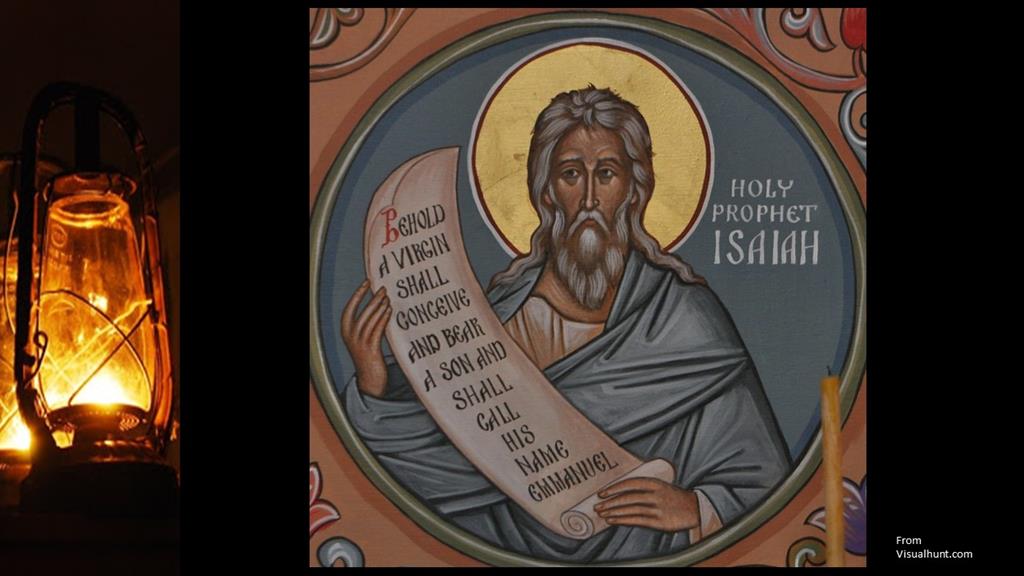 You know, the Prophet Isaiah had a lot of depressing things to say. He wrote about the fall of Israel and the coming exile for Jerusalem. War and destruction is at the forefront of his message, but occasionally Isaiah breaks out of the darkness. In Chapter 9, he writes, “The people who walked in darkness have seen a great light,”
You know, the Prophet Isaiah had a lot of depressing things to say. He wrote about the fall of Israel and the coming exile for Jerusalem. War and destruction is at the forefront of his message, but occasionally Isaiah breaks out of the darkness. In Chapter 9, he writes, “The people who walked in darkness have seen a great light,”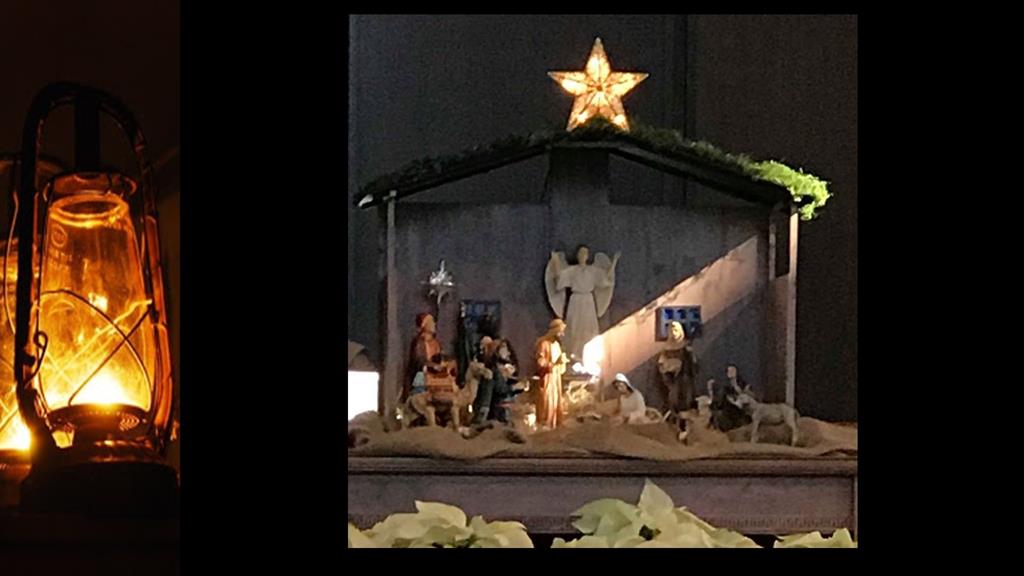 As Christians, we read these passages through the lens of Jesus, the light coming into the world as proclaimed in John’s gospel.
As Christians, we read these passages through the lens of Jesus, the light coming into the world as proclaimed in John’s gospel.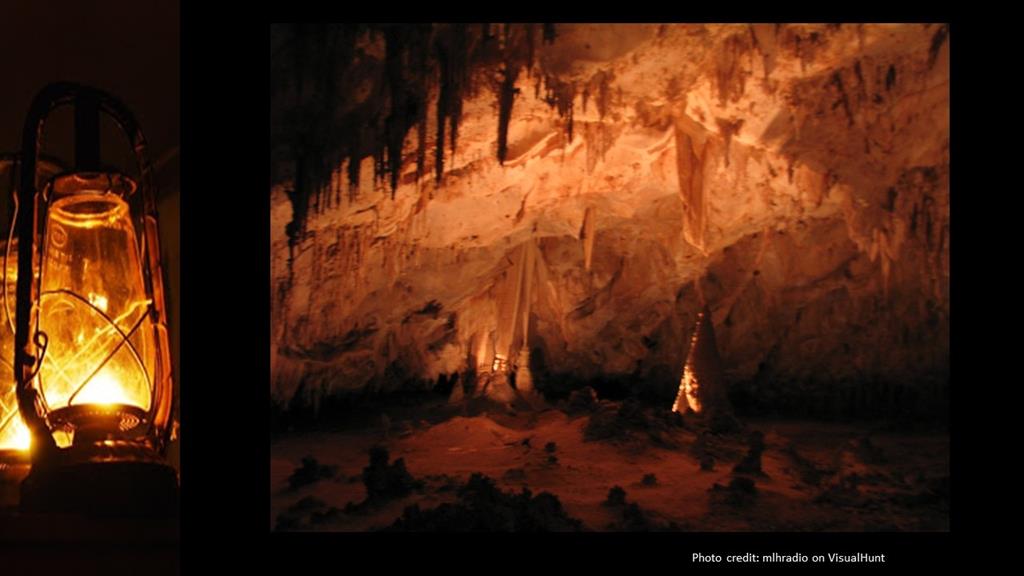 Years ago I had the opportunity to spend a few days spelunking (or caving) in eastern West Virginia. It was an incredible experience. When you are below ground like that, there is no light at all. Turn off your light and you can’t even see your hand in front of your face. At one point, we gathered in a huge underground room. Our guide had us place our cameras on tripods and to open the shutters, then had us go around the room popping flashes. Each splash of light would illuminate a section of the wall and ceiling, which we didn’t see until after the film was processed (these were the old days, long before digital). By bringing light into this cave, we got to experience on film the incredible beauty of this huge underground chamber that was dotted with crystals.
Years ago I had the opportunity to spend a few days spelunking (or caving) in eastern West Virginia. It was an incredible experience. When you are below ground like that, there is no light at all. Turn off your light and you can’t even see your hand in front of your face. At one point, we gathered in a huge underground room. Our guide had us place our cameras on tripods and to open the shutters, then had us go around the room popping flashes. Each splash of light would illuminate a section of the wall and ceiling, which we didn’t see until after the film was processed (these were the old days, long before digital). By bringing light into this cave, we got to experience on film the incredible beauty of this huge underground chamber that was dotted with crystals. This is what we as Christians are to be doing, bringing light into the world. Yes, there are problems. There are evil people who do terrible things, like the Iranian general who was just killed. There are hateful people who want to wipe others off the face of the earth. There are dishonest people who will lie and cheat to get ahead. There are misguided people who create chaos and whom try to profit at the expense of others. We live with partisan hatred in our own country and under the threat of terrorist attacks, both domestic and foreign. The possibility of war is always on the horizon. But despite all that, as believers in the one who came into a troubled world as a child, the one who was willing to die for our sin, the one for whom the grave could not hold, we have hope. There is much that’s good and beautiful in the world which, like that wall inside a cave, only needs a little light to shine upon it. That’s our job, to point people to all that’s good in the world and to what God is doing through his son, Jesus Christ.
This is what we as Christians are to be doing, bringing light into the world. Yes, there are problems. There are evil people who do terrible things, like the Iranian general who was just killed. There are hateful people who want to wipe others off the face of the earth. There are dishonest people who will lie and cheat to get ahead. There are misguided people who create chaos and whom try to profit at the expense of others. We live with partisan hatred in our own country and under the threat of terrorist attacks, both domestic and foreign. The possibility of war is always on the horizon. But despite all that, as believers in the one who came into a troubled world as a child, the one who was willing to die for our sin, the one for whom the grave could not hold, we have hope. There is much that’s good and beautiful in the world which, like that wall inside a cave, only needs a little light to shine upon it. That’s our job, to point people to all that’s good in the world and to what God is doing through his son, Jesus Christ.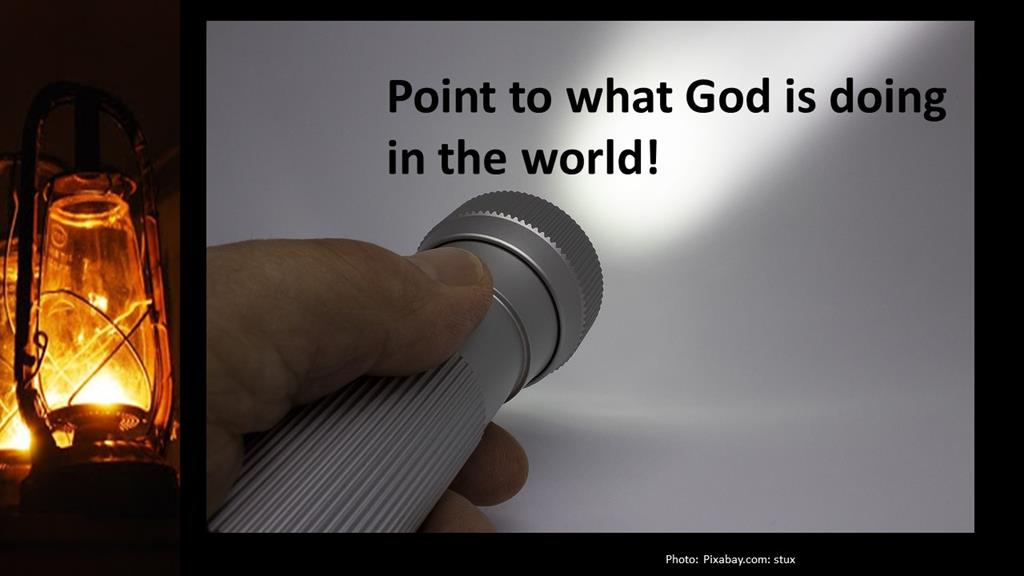 As we enter a New Year, flip the switch and be the light of the world. Hold tight to the faith we have and share the hope that in Jesus Christ, God has things under control. The good news is that we’re not alone as this New Year begins. Remember the truth of the Psalmist, “Weeping may linger for the night, but joy comes with the morning.
As we enter a New Year, flip the switch and be the light of the world. Hold tight to the faith we have and share the hope that in Jesus Christ, God has things under control. The good news is that we’re not alone as this New Year begins. Remember the truth of the Psalmist, “Weeping may linger for the night, but joy comes with the morning.